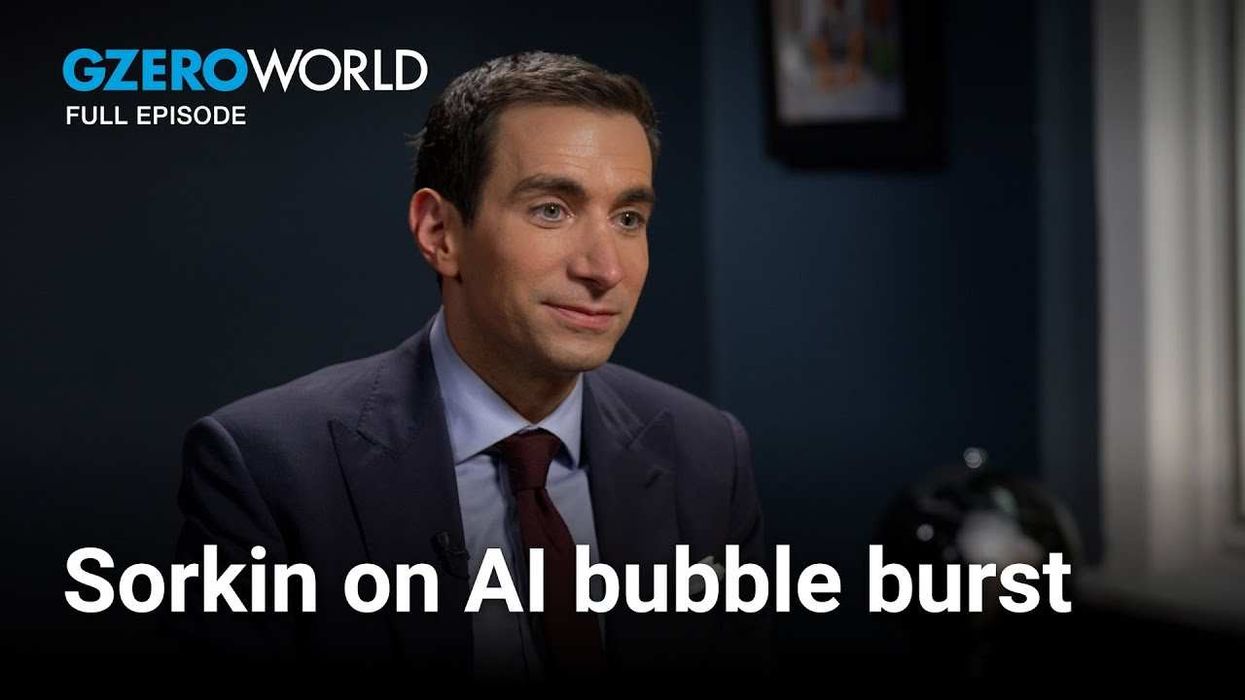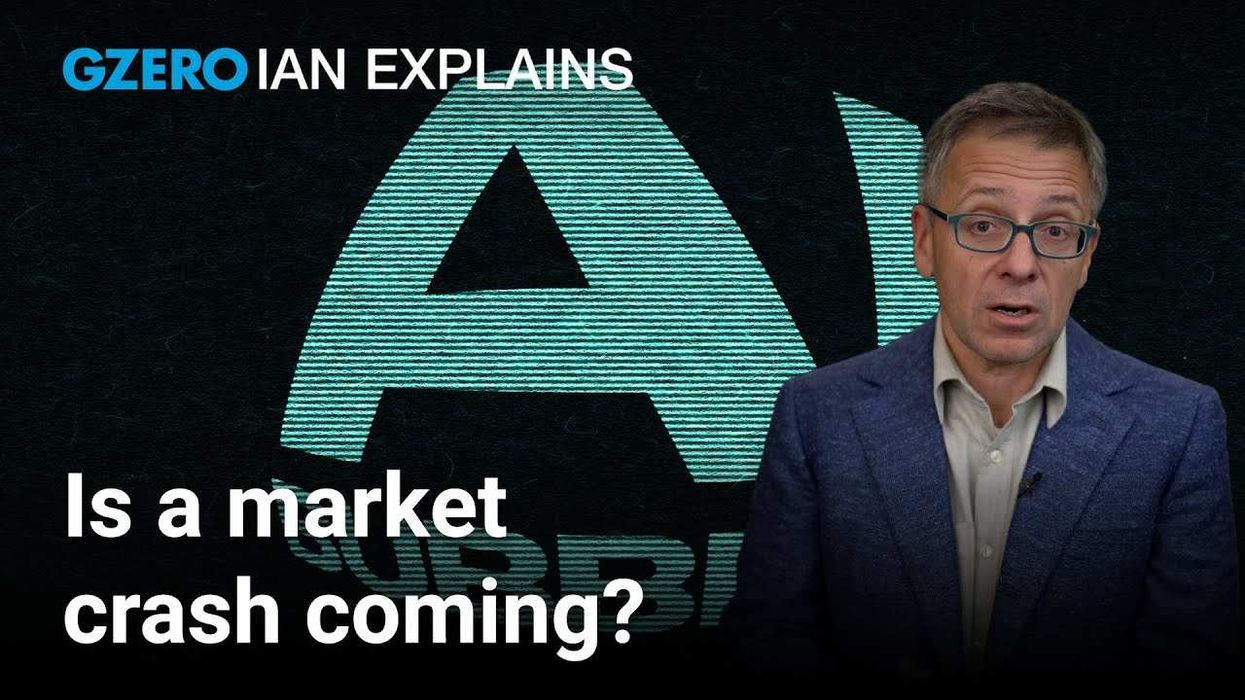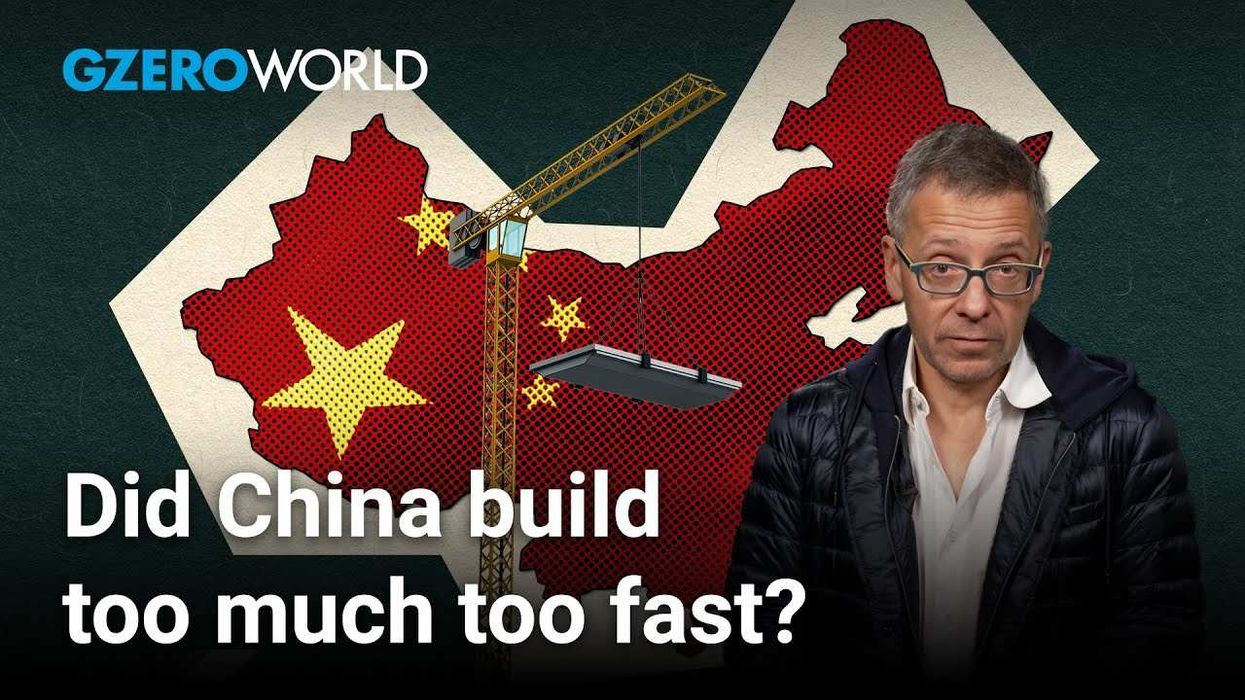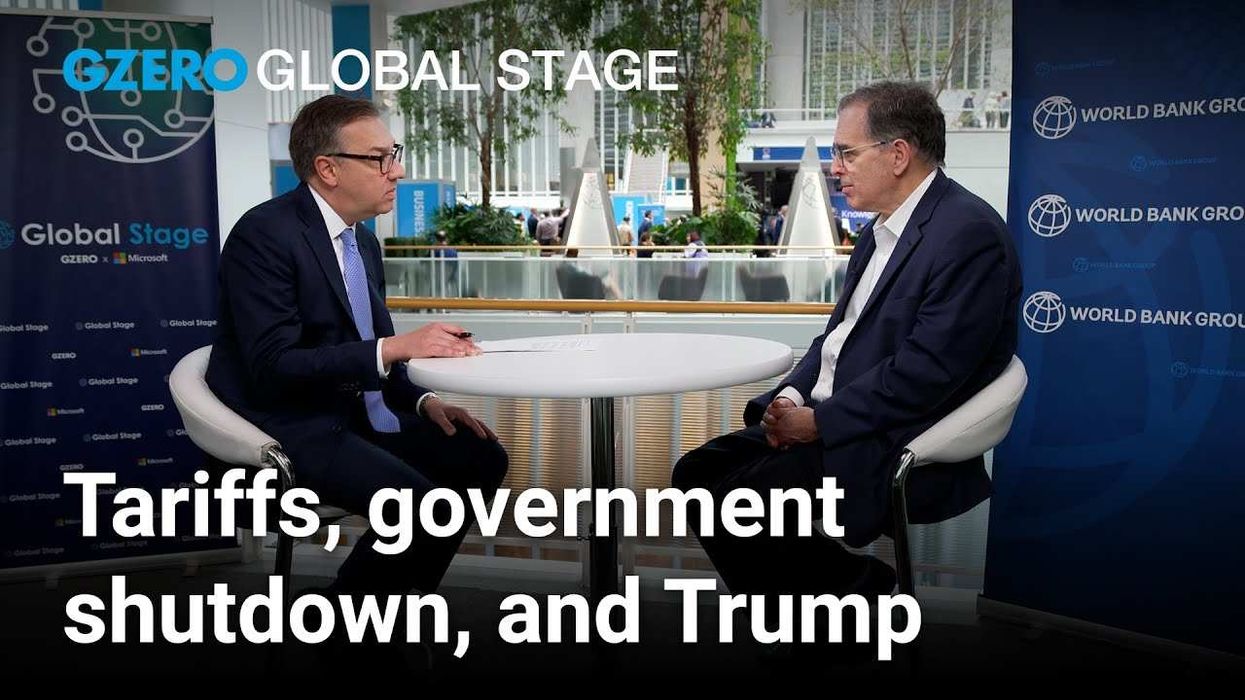Trending Now
We have updated our Privacy Policy and Terms of Use for Eurasia Group and its affiliates, including GZERO Media, to clarify the types of data we collect, how we collect it, how we use data and with whom we share data. By using our website you consent to our Terms and Conditions and Privacy Policy, including the transfer of your personal data to the United States from your country of residence, and our use of cookies described in our Cookie Policy.
Economy
Listen: As populations grow and communities evolve, transportation authorities and urban infrastructure are seeking ways to modernize.
In this episode of “Local to global: The power of small business,” host JJ Ramberg sits down with Chapin Flynn, Senior Vice President of Transit and Urban Mobility at Mastercard, and Mark Langmead, Director of Revenue & Compass Operations at TransLink in Vancouver, to explore how cities are making transit easier, faster, and more seamless for riders–an approach known as frictionless urban mobility.
They discuss how innovations like contactless tap-and-go technologies are reducing dwell time, speeding up boarding, and producing real-time data that helps transit agencies better plan and manage their systems.
Next gen urban mobility also has the potential to benefit small businesses: when transit becomes simpler, riders shift spending from automotive fuel to Main Street, foot traffic grows near transit arteries, and neighborhoods become more connected.
“Local to global: The power of small business” is a podcast series from GZERO Media's Blue Circle Studios and Mastercard, where we'll look behind the curtain to explore the world of small businesses and why they’re positioned to play an even bigger role in the future of the global economy.
“Most CEOs are really unwilling to say anything,” he tells Ian Bremmer. “They'll talk to you privately, absolutely. But publicly, unless they're going to be in praise of what's ever happening in Washington… they are not willing to raise their hand and say, ‘this is a problem."
Sorkin points to fear—both political and reputational—as a key reason why tech and financial leaders stay silent. “If I raise my hand now, I may not have a hand,” he says. “Should I raise it now? Should I raise it later? And will there be a later?”
As economic uncertainty grows, he questions whether the public can count on the private sector to lead. “If we ever get to a moment where there is a crisis… are there going to be leaders willing to stand up and explain what needs to happen?”
GZERO World with Ian Bremmer, the award-winning weekly global affairs series, airs nationwide on US public television stations (check local listings).
New digital episodes of GZERO World are released every Monday on YouTube. Don't miss an episode: subscribe to GZERO's YouTube channel and turn on notifications (🔔). GZERO World with Ian Bremmer airs on US public television weekly - check local listings.
Could another financial crash be looming—and would we even see it coming? On GZERO World, Ian Bremmer sits down with New York Times journalist and CNBC anchor Andrew Ross Sorkin to explore lessons from the Great Depression and the risks hiding in today’s economy. Sorkin’s new book, 1929: The Story of the Greatest Crash in American History, chronicles not just the initial collapse of the stock market, but the string of policy failures that followed—turning a crash into a crisis that scarred a generation.
“We're not going to have another 1929,” Sorkin says, “but I think it's very possible. Actually, I would argue it's almost impossible for us not to have another 1999.” He sees eerie parallels between the past and the present: massive speculative investments, surging inequality, and a public increasingly disconnected from financial realities. But one thing stands out today: silence. Sorkin warns that many CEOs and financial leaders, despite recognizing the risks, are unwilling to speak out publicly. “If we ever get to a moment where we need to make very difficult decisions,” he says, “are there going to be leaders willing to stand up and explain what needs to happen?”
From invisible debt in private credit markets to the unsustainable business models of leading AI firms, Sorkin and Bremmer explore whether we're ignoring the warning signs once again—and what it would take to avert the next big crash.
GZERO World with Ian Bremmer, the award-winning weekly global affairs series, airs nationwide on US public television stations (check local listings).
New digital episodes of GZERO World are released every Monday on YouTube.Don't miss an episode: subscribe to GZERO's YouTube channel and turn on notifications (🔔). GZERO World with Ian Bremmer airs on US public television weekly - check local listings.
From 17th-century Dutch tulip mania to the dot-com crash of the early 2000s, financial bubbles have a way of inflating around revolutionary ideas… until confidence collapses. “The internet was real,” Bremmer says. “It was just wildly overvalued.” Could AI be next?
GZERO World with Ian Bremmer, the award-winning weekly global affairs series, airs nationwide on US public television stations (check local listings).
New digital episodes of GZERO World are released every Monday on YouTube. Don't miss an episode: subscribe to GZERO's YouTube channel and turn on notifications (🔔). GZERO World with Ian Bremmer airs on US public television weekly - check local listings.
Argentina's inflation rate year over year October 2024 to Oct 2025
Argentina’s president Javier Milei inherited inflation that was over 200%, but after 18 consecutive months of it falling, it now stands at just 31%. While that is still one of the world’s highest, it is an impressive improvement. It comes as the US has sought to prop up Argentina’s economy, recently giving nearly $1 billion of its International Monetary Fund reserves to help Argentina make a critical debt payment to the IMF. The transaction follows the US recently providing Argentina with a $20 billion currency swap to stabilize the peso.
But after the boom, often comes the bust. China’s experience can be both a roadmap and a warning. The results of its building spree have been astounding: more high-speed rail than the rest of the world combined, soaring GDP growth, hundreds of millions lifted into the middle class. But the People’s Republic is now dealing with a stagnating economy. Local governments that financed all that construction are drowning in debt. China bet on physical infrastructure. The US is gambling on digital. If AI doesn’t deliver on its promise, both could end up in the same place: buried under the weight of their own ambition.
GZERO World with Ian Bremmer, the award-winning weekly global affairs series, airs nationwide on US public television stations (check local listings).
New digital episodes of GZERO World are released every Monday on YouTube. Don't miss an episode: subscribe to GZERO's YouTube channel and turn on notifications (🔔). GZERO World with Ian Bremmer airs on US public television weekly - check local listings.
As the US economy continues to defy expectations, Eurasia Group Managing Director of Global Macro Robert Kahn says the key question is whether a slowdown has been avoided or merely delayed. “The headline here is the impressive resilience of the US, maybe also the global economy over the last six months,” Kahn tells GZERO Media’s Tony Maciulis on the sidelines of the 2025 World Bank–IMF Annual Meetings.
He points to an AI-driven boom and tariff dynamics as major short-term supports, while warning that these trends may not be sustainable. Kahn also highlights deep uncertainty in the US–China trade relationship, describing a “fragile” moment of misunderstanding and escalation. Looking ahead, he flags the uneven nature of US growth and a prolonged government shutdown as key risks that could shift the economic outlook heading into the end of the year.
This conversation is presented by GZERO in partnership with Microsoft. The Global Stage series convenes global leaders for critical discussions on the geopolitical and technological trends shaping our world.




